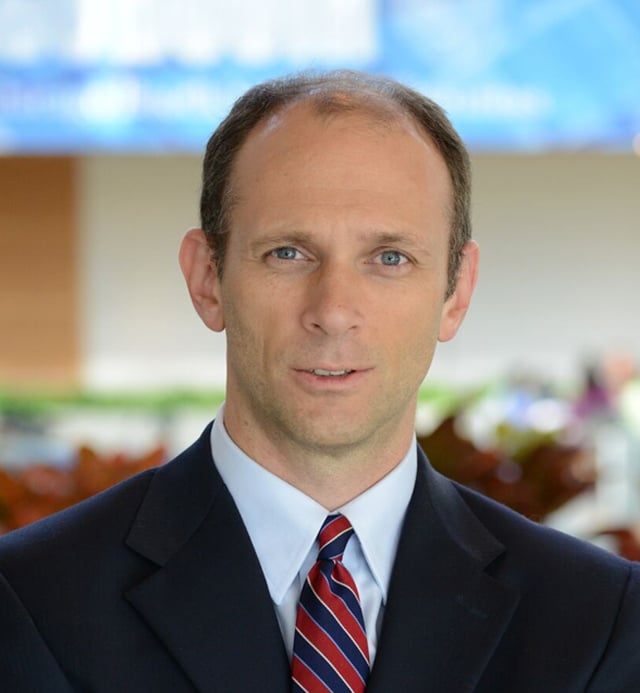-
Q&A with Affiliate Austan Goolsbee
Austan Goolsbee recently shared his thoughts on innovation, competition, and commercial litigation. Dr. Goolsbee is the Robert P. Gwinn Professor of Economics at The University of Chicago Booth School of Business. He has held several key roles in government, including Chairman of the Council of Economic Advisers during the Obama Administration and as a member of the President’s Cabinet.
There is much public debate about how we can increase growth in America – cutting taxes, eliminating regulations, focusing on science and technology, and so on. What’s your opinion?

Austan Goolsbee, Robert P. Gwinn Professor of Economics, The University of Chicago Booth School of Business
Dr. Goolsbee: I think two main worldviews are being debated among economists (and among political leaders, too) about the question of where growth and innovation come from. One view is that they come from the absence of government. If you cut taxes and get the government out of the way, we will grow. Now, for sure, you can damage an economy by over-taxing and over-regulating. For example, I once did some empirical research looking back on how taxes would have affected the spread of broadband technology in broadband’s early days. This research showed how taxes could produce enough surplus that suppliers in many smaller markets would be unable to cover their fixed costs and would delay the diffusion of broadband. It also showed that the inefficiency costs from those taxes were orders of magnitude larger than in other industries.
That said, the absence-of-government proponents still have to puzzle over the fact that some of the most innovative, highest-productivity places in the country, and in fact, the world – places like Silicon Valley or Manhattan – do not have either low taxes or low regulation. In the alternative worldview, growth comes from a private sector that relies on human capital, scientific research, economic infrastructure, and a series of other things where some investment and coordinating function from government is actually quite important. I would say I lean more to this view. But the debate will probably continue for quite some time.
What role does immigration play in innovative capacity for US businesses?
Dr. Goolsbee: The current administration has focused on limiting immigration. I think it’s a mistake. The data show that immigrants are much more likely to start companies, and they make up a disproportionate share of our engineering and technology talent. The share of foreign-born inventors and patent holders has risen dramatically over the last 20 years. Keeping out skilled and ambitious immigrants, coupled with cutting science funding and reducing financial aid to encourage native-born students to get more education, makes a pretty bleak triumvirate in my opinion.
-
“[A] ntitrust laws are designed to protect competition… But if enforcement becomes politicized – that is, if the interests of particular firms are put ahead of consumers, whether foreign entities are present or not – then I worry that competition will get distorted and it’s the American people who will suffer.”
-
The trade implications of an “America First” policy are front and center. What might be the implications for competition or intellectual property law?
Dr. Goolsbee: The antitrust laws are designed to protect competition, and ultimately that means asking whether consumers are better or worse off because of the way that competition has unfolded in a particular market, and of course that market may include foreign competitors. If enforcement actions keep the end goal in mind, I am not too worried. But if enforcement becomes politicized – that is, if the interests of particular firms are put ahead of consumers, whether foreign entities are present or not – then I worry that competition will get distorted and it’s the American people who will suffer.
In terms of intellectual property, efforts have been underway for at least the past decade to further harmonize the USPTO [US Patent and Trademark Office] and the US Copyright Office with their foreign counterparts, or with international organizations such as WIPO [World Intellectual Property Organization]. Regardless of any border concerns, intangible assets travel easily. Our policies need to acknowledge that.
You have some experience serving as an expert in litigation matters. Can commercial litigation be good for us?
Dr. Goolsbee: That’s a funny way of putting it, perhaps. For sure, it’s critical to have an enforceable system of law that allows disputes to get resolved in a predictable way. I have had the chance to work on some really interesting matters – some that have had broader implications for precedent or for policy. It strikes me that the higher the stakes, the more vested the parties are in trying to get the right answer. It’s an adversarial process, but that creates almost a form of peer review for the experts. Like in academia, that kind of situation forces a high standard of evidence and makes the facts essential. ■
